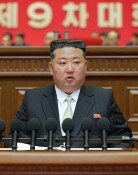Korea Posts 1st Current Account Deficit in 12 Months
Korea Posts 1st Current Account Deficit in 12 Months
Posted February. 26, 2010 07:23,
Falling exports led to a deficit last month in the current account balance.
Experts say economic recovery has slowed down, predicting that the current account deficit will delay an exit strategy, which seeks to reduce liquidity by raising the benchmark interest rate.
According to a Bank of Korea report released yesterday, the current account balance in January finished 447.5 million U.S. dollars in the red, the first deficit since January last year.
Korea posted its largest current account surplus of 6.3 billion dollars in March last year, but the figure fell to 4.76 billion dollars in October, 4.28 billion dollars in November, and 1.52 billion dollars in December.
The deficit was caused by sluggish exports that had led economic recovery. Last months exports reached 32.27 billion dollars, down 4.1 billion dollars (11 percent) from December last year.
Ship exports (1.83 billion dollars) last month amounted to less than half those in December.
Exports of cars plummeted a whopping 450 million dollars largely because exports to debt-stricken Europe fell more than 1.2 billion dollars in a month, and those to the U.S. and China, Koreas major markets, dropped as well.
The Bank of Korea said January exports this year dropped significantly because companies exported en masse to enhance business performances on their books at the end of last year, and heavy snowfall last month disturbed shipping.
The service deficit of 2.16 billion dollars last month contributed to the red ink in the current account. A significant increase in overseas travel by Koreans early this year led to a deficit of 900 million dollars in the travel sector, which is part of the service balance.
The drop was the largest since September 2008, when Lehman Brothers went into bankruptcy.
While the central bank sees a current account deficit as temporary, the government said an exit strategy will be suspended if exports fall at a time when household debts are mounting and southern Europes debt crisis is continuing.
Lee Yeong-bok, the head of the central bank`s international balance of payments department, said, The current account showed a temporary deficit in January due to seasonal causes, but will turn to a surplus in February.
The Strategy and Finance Ministry also said raising the benchmark interest rate could discourage corporate investment sentiment, adding households unable to pay debts could go bankrupt amid the current account deficit.
A high-ranking ministry official said, If household debts, which have been well managed thanks to low interest rates, grow troublesome due to higher interest rates, and external risk factors such as southern Europes debt crisis spread, the Korean economy could get seriously dragged down.
weappon@donga.com legman@donga.com







